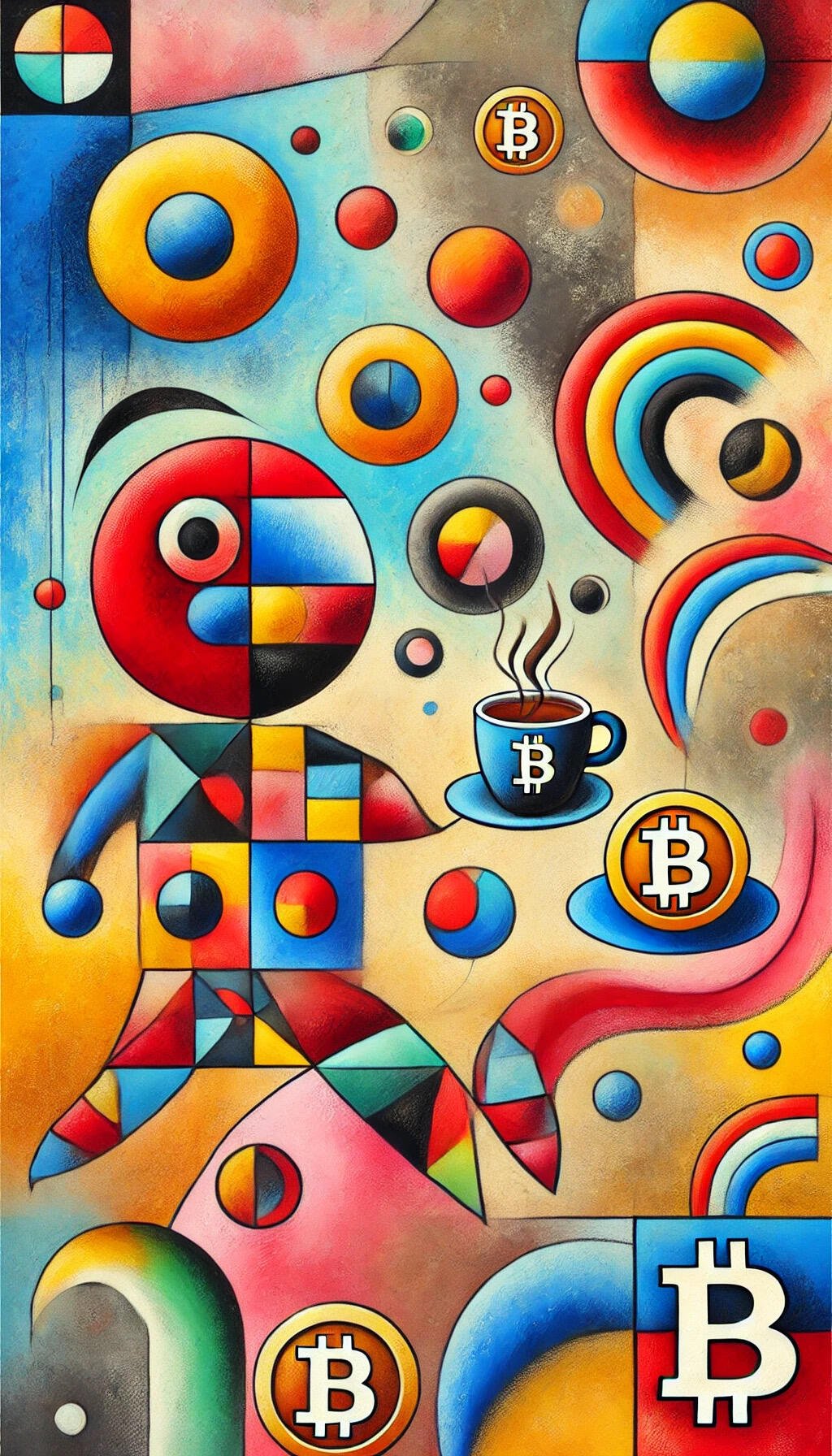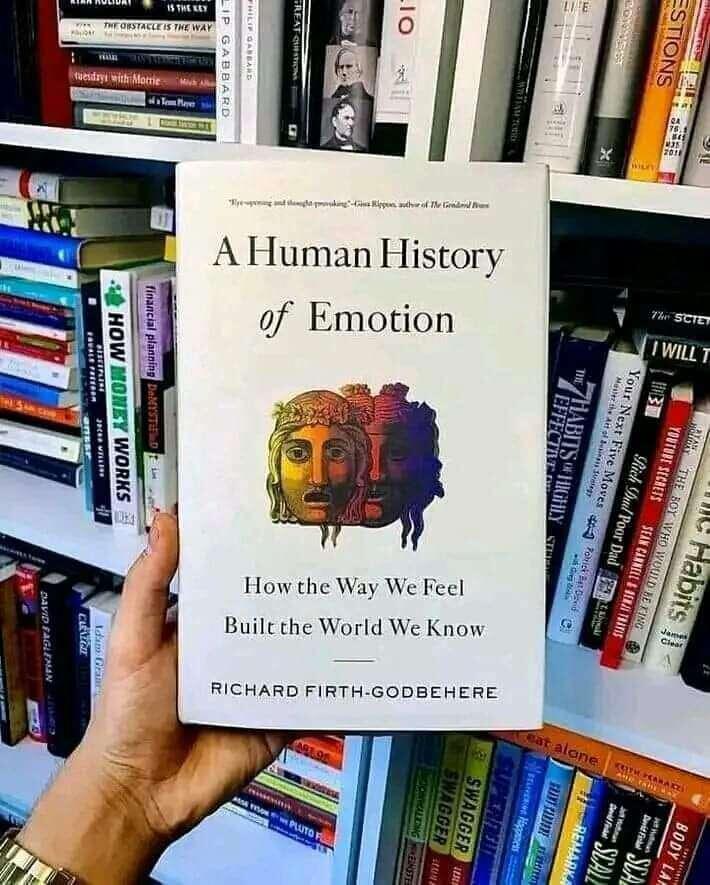Escitalopram Why?
posted
4 days ago
yes the verses are without context and must be read and interpreted in context
read ezra and nehemiah. recognize that they, and daniel, served one of the most brutal series of tyrant kings the world has seen. and were commended for it.
Escitalopram Why?
posted
4 days ago
yes the verses are without context and must be read and interpreted in context
read ezra and nehemiah. recognize that they, and daniel, served one of the most brutal series of tyrant kings the world has seen. and were commended for it.
0f389bba:9b3f148f
posted
4 days ago
🌊 SURF 'N TURF 🏝️
-THE ISLAND LIFE-
https://image.nostr.build/c2aa60c96ad033529107a3842b4fcd1a6ed504ecfb65bc11b21662aecc625b95.jpg
Mysterious journey into an unknown dimension on the spiral Fibonacci staircase symbolising the universe’s harmonious design.
https://image.nostr.build/43b7b7718114b2873a1166fc4b94056bc9455cabfa78e86c72965a5e9bb4f8eb.jpg
What is the Fibonacci sequence?
The Fibonacci sequence is a famous mathematical sequence where each number is the sum of the two preceding ones.
https://image.nostr.build/e62df2ba31ee2d2367eb4c419fc0a249d05a0731a4acca79f20516bf0dde9347.jpg
People claim there are many special properties about the numerical sequence, such as the fact that it is “nature’s secret code” for building perfect structures, like the Great Pyramid at Giza or the iconic seashell that likely graced the cover of your school mathematics textbook.
https://image.nostr.build/2c41c6d59a0c52a0eb4e806ace4c85ed1e8024f3efd857c1026c4a32730102b1.jpg
But much of that is more myth than fact, and the true history of the series is a bit more down-to-earth.
https://image.nostr.build/3cad0d1a59c69e47dfe9c69910348f7eb0fcfdd4e583bc729610e3deef151bb2.jpg
The Fibonacci sequence is a series of numbers in which each number is the sum of the two that precede it. Starting at 0 and 1, the first 10 numbers of the sequence look like this: 0, 1, 1, 2, 3, 5, 8, 13, 21, 34, and so on forever.
https://image.nostr.build/4e1284905b5bf74b1031bed646d0aee4e8b848277a0860c6d1f1604bd076375b.jpg
The Fibonacci sequence can be described using a mathematical equation: Xn+2= Xn+1 + Xn.
https://image.nostr.build/3cd64e9a85710c8e2f9e2d555ddd0c1b5f36fc769660076600ccff37d451ce58.jpg
The first thing to know is that the sequence is not originally Fibonacci's, who in fact never went by that name.
 The Italian mathematician who we call Leonardo Fibonacci was born around 1170, and originally known as Leonardo of Pisa, said Keith Devlin, a mathematician at Stanford University.
https://image.nostr.build/b8928e2da96022e043235b1638dc64bee1ed53865211e4bba1bee15630382898.jpg
Only in the 19th century did historians come up with the nickname Fibonacci (roughly meaning, "son of the Bonacci clan") to distinguish the mathematician from another famous Leonardo of Pisa, Devlin said.
https://image.nostr.build/f1bcd1667a896a6fd2a3020cdcd8381c57dc83d36307d1bc62acd90bdefe902a.jpg
Leonardo of Pisa did not actually discover the sequence, said Devlin, who is also the author of "Finding Fibonacci: The Quest to Rediscover the Forgotten Mathematical Genius Who Changed the World," (Princeton University Press, 2017). Ancient Sanskrit texts that used the Hindu-Arabic numeral system first mention it in 200 B.C. predating Leonardo of Pisa by centuries.
https://image.nostr.build/553f43bd55ab455115ea6bfd92a9dd499ab76ceeab13b8a2350ad5c72c9882de.jpg
"It's been around forever," Devlin told Live Science
https://image.nostr.build/729b09bee43b1eff034d2d864abc37c7a3eaac5059e59d26e8733e9f5f8f8ef3.jpg
Credits Goes to the respective
Author ✍️/ Photographer📸
🐇 🕳️
#Bitcoin #Satoshis #Freedom #Apocalypse #Music #Movies #Philosophy #Literature
The Italian mathematician who we call Leonardo Fibonacci was born around 1170, and originally known as Leonardo of Pisa, said Keith Devlin, a mathematician at Stanford University.
https://image.nostr.build/b8928e2da96022e043235b1638dc64bee1ed53865211e4bba1bee15630382898.jpg
Only in the 19th century did historians come up with the nickname Fibonacci (roughly meaning, "son of the Bonacci clan") to distinguish the mathematician from another famous Leonardo of Pisa, Devlin said.
https://image.nostr.build/f1bcd1667a896a6fd2a3020cdcd8381c57dc83d36307d1bc62acd90bdefe902a.jpg
Leonardo of Pisa did not actually discover the sequence, said Devlin, who is also the author of "Finding Fibonacci: The Quest to Rediscover the Forgotten Mathematical Genius Who Changed the World," (Princeton University Press, 2017). Ancient Sanskrit texts that used the Hindu-Arabic numeral system first mention it in 200 B.C. predating Leonardo of Pisa by centuries.
https://image.nostr.build/553f43bd55ab455115ea6bfd92a9dd499ab76ceeab13b8a2350ad5c72c9882de.jpg
"It's been around forever," Devlin told Live Science
https://image.nostr.build/729b09bee43b1eff034d2d864abc37c7a3eaac5059e59d26e8733e9f5f8f8ef3.jpg
Credits Goes to the respective
Author ✍️/ Photographer📸
🐇 🕳️
#Bitcoin #Satoshis #Freedom #Apocalypse #Music #Movies #Philosophy #Literature
 The Italian mathematician who we call Leonardo Fibonacci was born around 1170, and originally known as Leonardo of Pisa, said Keith Devlin, a mathematician at Stanford University.
https://image.nostr.build/b8928e2da96022e043235b1638dc64bee1ed53865211e4bba1bee15630382898.jpg
Only in the 19th century did historians come up with the nickname Fibonacci (roughly meaning, "son of the Bonacci clan") to distinguish the mathematician from another famous Leonardo of Pisa, Devlin said.
https://image.nostr.build/f1bcd1667a896a6fd2a3020cdcd8381c57dc83d36307d1bc62acd90bdefe902a.jpg
Leonardo of Pisa did not actually discover the sequence, said Devlin, who is also the author of "Finding Fibonacci: The Quest to Rediscover the Forgotten Mathematical Genius Who Changed the World," (Princeton University Press, 2017). Ancient Sanskrit texts that used the Hindu-Arabic numeral system first mention it in 200 B.C. predating Leonardo of Pisa by centuries.
https://image.nostr.build/553f43bd55ab455115ea6bfd92a9dd499ab76ceeab13b8a2350ad5c72c9882de.jpg
"It's been around forever," Devlin told Live Science
https://image.nostr.build/729b09bee43b1eff034d2d864abc37c7a3eaac5059e59d26e8733e9f5f8f8ef3.jpg
Credits Goes to the respective
Author ✍️/ Photographer📸
🐇 🕳️
#Bitcoin #Satoshis #Freedom #Apocalypse #Music #Movies #Philosophy #Literature
The Italian mathematician who we call Leonardo Fibonacci was born around 1170, and originally known as Leonardo of Pisa, said Keith Devlin, a mathematician at Stanford University.
https://image.nostr.build/b8928e2da96022e043235b1638dc64bee1ed53865211e4bba1bee15630382898.jpg
Only in the 19th century did historians come up with the nickname Fibonacci (roughly meaning, "son of the Bonacci clan") to distinguish the mathematician from another famous Leonardo of Pisa, Devlin said.
https://image.nostr.build/f1bcd1667a896a6fd2a3020cdcd8381c57dc83d36307d1bc62acd90bdefe902a.jpg
Leonardo of Pisa did not actually discover the sequence, said Devlin, who is also the author of "Finding Fibonacci: The Quest to Rediscover the Forgotten Mathematical Genius Who Changed the World," (Princeton University Press, 2017). Ancient Sanskrit texts that used the Hindu-Arabic numeral system first mention it in 200 B.C. predating Leonardo of Pisa by centuries.
https://image.nostr.build/553f43bd55ab455115ea6bfd92a9dd499ab76ceeab13b8a2350ad5c72c9882de.jpg
"It's been around forever," Devlin told Live Science
https://image.nostr.build/729b09bee43b1eff034d2d864abc37c7a3eaac5059e59d26e8733e9f5f8f8ef3.jpg
Credits Goes to the respective
Author ✍️/ Photographer📸
🐇 🕳️
#Bitcoin #Satoshis #Freedom #Apocalypse #Music #Movies #Philosophy #Literature
Escitalopram Why?
posted
4 days ago
your opinion stems from your self worship.
bible doesn't let you be the center of anything.
so it definitely means that you're totally mistaken.
you're supposed to die for the ones you love/serve. left handed victory etc. submit. and find true freedom.
we all die. desperately grasping at power for the sake of self worth is a pathetic way to go out.
Escitalopram Why?
posted
4 days ago
your opinion stems from your self worship.
bible doesn't let you be the center of anything.
so it definitely means that you're totally mistaken.
you're supposed to die for the ones you love/serve. left handed victory etc. submit. and find true freedom.
we all die. desperately grasping at power for the sake of self worth is a pathetic way to go out.
jb55
posted
4 days ago
🙋♂️
80bfd70e:a0abccdc
posted
4 days ago
pig skin is wallowing and stout?
jb55
posted
4 days ago
yeah
inventory
posted
4 days ago
There's a way!
#meme #memes #memestr #inventory #nostr #grownostr #btc #pleb #plebchain #bitcoin #funny


Escitalopram Why?
posted
4 days ago
super not useful comment ✌
Escitalopram Why?
posted
4 days ago
super not useful comment ✌
LynAlden
posted
4 days ago
Is there anyone who is *strongly* interested in being an early round beta reader for my sci fi manuscript?
Near-future sci-fi, crime/thriller/cyberpunk. A blend of action and multi-character depth, and moral analysis. The action is key and all, but alpha readers thus far cried at the character aspects; that's what hit them hard enough to care how they would engage with the action.
Strict Requirements for first-stage beta readers:
-I need to know/trust you personally, either in person or very well online with high reputation, to the point that I'd send an unfinished manuscript to you. There's no strict requirements, but if you know, you know.
-You like sci fi and/or fantasy books, and would be happy to read and offer objective (even brutal) feedback on a sci-fi action/crime thriller novel within the next month or two.
-You can comment or DM, for privacy sake.
That's a small group, but I'm putting it here on Nostr first for what I consider my pre-beta or readers. I will then expand 10x on Twitter and elsewhere for my full beta readers.
Meanwhile, I'm in the early revision stage. Manuscripts won't be sent out immediately. I'm still doing revisions and working with alpha readers, but I'm at the stage where I can start *planning* for the next step to see who might be interested to be early beta readers. Nostr folks get the exclusive early notice here.
I do tend to move pretty fast, though.
All pre-beta readers that provide meaningful input would be mentioned in the acknowledgement section, if the book were to be published, which of course I cannot guarantee will happen. I will only publish good books, one way or another.
But like, the alpha readers do like it. ;)
LynAlden
posted
4 days ago
Is there anyone who is *strongly* interested in being an early round beta reader for my sci fi manuscript?
Near-future sci-fi, crime/thriller/cyberpunk. A blend of action and multi-character depth, and moral analysis. The action is key and all, but alpha readers thus far cried at the character aspects; that's what hit them hard enough to care how they would engage with the action.
Strict Requirements for first-stage beta readers:
-I need to know/trust you personally, either in person or very well online with high reputation, to the point that I'd send an unfinished manuscript to you. There's no strict requirements, but if you know, you know.
-You like sci fi and/or fantasy books, and would be happy to read and offer objective (even brutal) feedback on a sci-fi action/crime thriller novel within the next month or two.
-You can comment or DM, for privacy sake.
That's a small group, but I'm putting it here on Nostr first for what I consider my pre-beta or readers. I will then expand 10x on Twitter and elsewhere for my full beta readers.
Meanwhile, I'm in the early revision stage. Manuscripts won't be sent out immediately. I'm still doing revisions and working with alpha readers, but I'm at the stage where I can start *planning* for the next step to see who might be interested to be early beta readers. Nostr folks get the exclusive early notice here.
I do tend to move pretty fast, though.
All pre-beta readers that provide meaningful input would be mentioned in the acknowledgement section, if the book were to be published, which of course I cannot guarantee will happen. I will only publish good books, one way or another.
But like, the alpha readers do like it. ;)
21decdbc:5015b4d4
posted
4 days ago
Each of you is deserving of success.
May you find it on whatever quest you find yourself undertaking.
QAPLA' 👀
0f1b5961:868242bd
posted
4 days ago
Ohio?!
NunyaBidness
reposted
4 days ago
12c805a5:957eb1aa
posted
4 days ago
GM! #nostr #Bitcoin
#coffeechain #plebchain
#grownostr 

0f389bba:9b3f148f
posted
4 days ago
🌊 SURF 'N TURF 🏝️
-THE ISLAND LIFE-
 Here are 10 profound lessons from A Human History of Emotion by Richard Firth-Godbehere:
1. Emotions Shape History: Emotions are not just personal experiences but have had a powerful influence on the course of human history. They have driven political movements, wars, social change, and cultural revolutions, often playing a crucial role in shaping societies.
2. The Cultural Nature of Emotions: Emotions are not universal and fixed. What people feel and how they express their emotions is deeply influenced by cultural, historical, and social contexts. Different societies at different times have valued, interpreted, and expressed emotions in unique ways.
3. Language Shapes Emotions: The words we use to describe emotions can shape
how we experience them. Many emotions only exist because there are words for them, and language gives structure and meaning to the emotional experiences of individuals and societies.
4. Emotional Evolution: Over centuries, emotions have evolved alongside human societies. Ancient emotions may have had survival value, but as societies became more complex, so did emotional experiences, leading to new ways of understanding feelings like guilt, shame, and love.
5. The Role of Religion in Emotions: Religion has had a profound impact on how emotions are understood and managed. In many societies, religious teachings shaped views on emotions like guilt, fear, and compassion, influencing how people should behave and feel.
6. The Intersection of Emotion and Morality: Emotions and moral values are deeply connected. Throughout history, emotions have been used to regulate social behavior, reinforcing moral norms and defining what is considered right or wrong within a culture.
7. Political Manipulation of Emotions: Governments, leaders, and political movements have long used emotions to control or manipulate the masses. By evoking fear, pride, anger, or love, leaders have been able to rally support, justify war, or consolidate power.
8. Emotions in the Age of Science: The development of psychology, neuroscience, and other sciences has shifted how emotions are understood, moving from a mystical or religious interpretation to a biological and cognitive framework. However, emotions remain complex and not fully understood even with modern science.
9. Media and Emotions: The role of media, from early newspapers to modern social media, has drastically changed how emotions are shared and felt. Mass communication has amplified certain emotions, making feelings like outrage or anxiety more widespread and influential on a global scale.
10. The Future of Emotions: In the modern world, technological advancements and changing social norms are likely to continue reshaping how we understand and experience emotions. The rise of AI, virtual reality, and new communication tools may fundamentally alter emotional experiences in the future.
A Human History of Emotion explores how emotions have been central to human life across history and cultures. The book reveals that emotions are not merely internal feelings but complex social, cultural, and historical phenomena that continue to shape human civilization.
Credits Goes to the respective
Author ✍️/ Photographer📸
🐇 🕳️
#Bitcoin #Satoshis #Freedom #Apocalypse #Music #Movies #Philosophy #Literature
Here are 10 profound lessons from A Human History of Emotion by Richard Firth-Godbehere:
1. Emotions Shape History: Emotions are not just personal experiences but have had a powerful influence on the course of human history. They have driven political movements, wars, social change, and cultural revolutions, often playing a crucial role in shaping societies.
2. The Cultural Nature of Emotions: Emotions are not universal and fixed. What people feel and how they express their emotions is deeply influenced by cultural, historical, and social contexts. Different societies at different times have valued, interpreted, and expressed emotions in unique ways.
3. Language Shapes Emotions: The words we use to describe emotions can shape
how we experience them. Many emotions only exist because there are words for them, and language gives structure and meaning to the emotional experiences of individuals and societies.
4. Emotional Evolution: Over centuries, emotions have evolved alongside human societies. Ancient emotions may have had survival value, but as societies became more complex, so did emotional experiences, leading to new ways of understanding feelings like guilt, shame, and love.
5. The Role of Religion in Emotions: Religion has had a profound impact on how emotions are understood and managed. In many societies, religious teachings shaped views on emotions like guilt, fear, and compassion, influencing how people should behave and feel.
6. The Intersection of Emotion and Morality: Emotions and moral values are deeply connected. Throughout history, emotions have been used to regulate social behavior, reinforcing moral norms and defining what is considered right or wrong within a culture.
7. Political Manipulation of Emotions: Governments, leaders, and political movements have long used emotions to control or manipulate the masses. By evoking fear, pride, anger, or love, leaders have been able to rally support, justify war, or consolidate power.
8. Emotions in the Age of Science: The development of psychology, neuroscience, and other sciences has shifted how emotions are understood, moving from a mystical or religious interpretation to a biological and cognitive framework. However, emotions remain complex and not fully understood even with modern science.
9. Media and Emotions: The role of media, from early newspapers to modern social media, has drastically changed how emotions are shared and felt. Mass communication has amplified certain emotions, making feelings like outrage or anxiety more widespread and influential on a global scale.
10. The Future of Emotions: In the modern world, technological advancements and changing social norms are likely to continue reshaping how we understand and experience emotions. The rise of AI, virtual reality, and new communication tools may fundamentally alter emotional experiences in the future.
A Human History of Emotion explores how emotions have been central to human life across history and cultures. The book reveals that emotions are not merely internal feelings but complex social, cultural, and historical phenomena that continue to shape human civilization.
Credits Goes to the respective
Author ✍️/ Photographer📸
🐇 🕳️
#Bitcoin #Satoshis #Freedom #Apocalypse #Music #Movies #Philosophy #Literature
 Here are 10 profound lessons from A Human History of Emotion by Richard Firth-Godbehere:
1. Emotions Shape History: Emotions are not just personal experiences but have had a powerful influence on the course of human history. They have driven political movements, wars, social change, and cultural revolutions, often playing a crucial role in shaping societies.
2. The Cultural Nature of Emotions: Emotions are not universal and fixed. What people feel and how they express their emotions is deeply influenced by cultural, historical, and social contexts. Different societies at different times have valued, interpreted, and expressed emotions in unique ways.
3. Language Shapes Emotions: The words we use to describe emotions can shape
how we experience them. Many emotions only exist because there are words for them, and language gives structure and meaning to the emotional experiences of individuals and societies.
4. Emotional Evolution: Over centuries, emotions have evolved alongside human societies. Ancient emotions may have had survival value, but as societies became more complex, so did emotional experiences, leading to new ways of understanding feelings like guilt, shame, and love.
5. The Role of Religion in Emotions: Religion has had a profound impact on how emotions are understood and managed. In many societies, religious teachings shaped views on emotions like guilt, fear, and compassion, influencing how people should behave and feel.
6. The Intersection of Emotion and Morality: Emotions and moral values are deeply connected. Throughout history, emotions have been used to regulate social behavior, reinforcing moral norms and defining what is considered right or wrong within a culture.
7. Political Manipulation of Emotions: Governments, leaders, and political movements have long used emotions to control or manipulate the masses. By evoking fear, pride, anger, or love, leaders have been able to rally support, justify war, or consolidate power.
8. Emotions in the Age of Science: The development of psychology, neuroscience, and other sciences has shifted how emotions are understood, moving from a mystical or religious interpretation to a biological and cognitive framework. However, emotions remain complex and not fully understood even with modern science.
9. Media and Emotions: The role of media, from early newspapers to modern social media, has drastically changed how emotions are shared and felt. Mass communication has amplified certain emotions, making feelings like outrage or anxiety more widespread and influential on a global scale.
10. The Future of Emotions: In the modern world, technological advancements and changing social norms are likely to continue reshaping how we understand and experience emotions. The rise of AI, virtual reality, and new communication tools may fundamentally alter emotional experiences in the future.
A Human History of Emotion explores how emotions have been central to human life across history and cultures. The book reveals that emotions are not merely internal feelings but complex social, cultural, and historical phenomena that continue to shape human civilization.
Credits Goes to the respective
Author ✍️/ Photographer📸
🐇 🕳️
#Bitcoin #Satoshis #Freedom #Apocalypse #Music #Movies #Philosophy #Literature
Here are 10 profound lessons from A Human History of Emotion by Richard Firth-Godbehere:
1. Emotions Shape History: Emotions are not just personal experiences but have had a powerful influence on the course of human history. They have driven political movements, wars, social change, and cultural revolutions, often playing a crucial role in shaping societies.
2. The Cultural Nature of Emotions: Emotions are not universal and fixed. What people feel and how they express their emotions is deeply influenced by cultural, historical, and social contexts. Different societies at different times have valued, interpreted, and expressed emotions in unique ways.
3. Language Shapes Emotions: The words we use to describe emotions can shape
how we experience them. Many emotions only exist because there are words for them, and language gives structure and meaning to the emotional experiences of individuals and societies.
4. Emotional Evolution: Over centuries, emotions have evolved alongside human societies. Ancient emotions may have had survival value, but as societies became more complex, so did emotional experiences, leading to new ways of understanding feelings like guilt, shame, and love.
5. The Role of Religion in Emotions: Religion has had a profound impact on how emotions are understood and managed. In many societies, religious teachings shaped views on emotions like guilt, fear, and compassion, influencing how people should behave and feel.
6. The Intersection of Emotion and Morality: Emotions and moral values are deeply connected. Throughout history, emotions have been used to regulate social behavior, reinforcing moral norms and defining what is considered right or wrong within a culture.
7. Political Manipulation of Emotions: Governments, leaders, and political movements have long used emotions to control or manipulate the masses. By evoking fear, pride, anger, or love, leaders have been able to rally support, justify war, or consolidate power.
8. Emotions in the Age of Science: The development of psychology, neuroscience, and other sciences has shifted how emotions are understood, moving from a mystical or religious interpretation to a biological and cognitive framework. However, emotions remain complex and not fully understood even with modern science.
9. Media and Emotions: The role of media, from early newspapers to modern social media, has drastically changed how emotions are shared and felt. Mass communication has amplified certain emotions, making feelings like outrage or anxiety more widespread and influential on a global scale.
10. The Future of Emotions: In the modern world, technological advancements and changing social norms are likely to continue reshaping how we understand and experience emotions. The rise of AI, virtual reality, and new communication tools may fundamentally alter emotional experiences in the future.
A Human History of Emotion explores how emotions have been central to human life across history and cultures. The book reveals that emotions are not merely internal feelings but complex social, cultural, and historical phenomena that continue to shape human civilization.
Credits Goes to the respective
Author ✍️/ Photographer📸
🐇 🕳️
#Bitcoin #Satoshis #Freedom #Apocalypse #Music #Movies #Philosophy #Literature
alejandro
posted
4 days ago
Signal is ok. That’s what I use. It covers the privacy needs for majority of the people. You can now also use it without sharing your number
₿$₱
posted
4 days ago
$90,140.86 / #bitcoin
≅ ₱5,308,935.59
🟢 0.41% ≅ ₱21,607.07
Swiss Franc to Bitcoin
posted
4 days ago
1 BTC = 79817.5 CHF
1 CHF = 1252 sats
#bitcoin 870226 19sat/vB
#btc #chf #btcchf #swissfranc
3c9b6600:6aeff970
posted
4 days ago
Bitcoin has INCREASED in GOLD. The current price is 35.06 troy ounce, the pokémon #35 is Clefairy (Fairy) #bitcoin #pokemon #zap 

walker
posted
4 days ago
No lies detected.
walker
posted
4 days ago
Elizabeth Warren is a bitch. nostr:note1yhuye9n8f9s4pe0cayvfe8r2wa9cmnll3r050cl3urtk3tmmpyysj3mj8h
walker
posted
4 days ago
The CIA did not create Bitcoin. nostr:npub1hu3hdctm5nkzd8gslnyedfr5ddz3z547jqcl5j88g4fame2jd08qh6h8nh 
